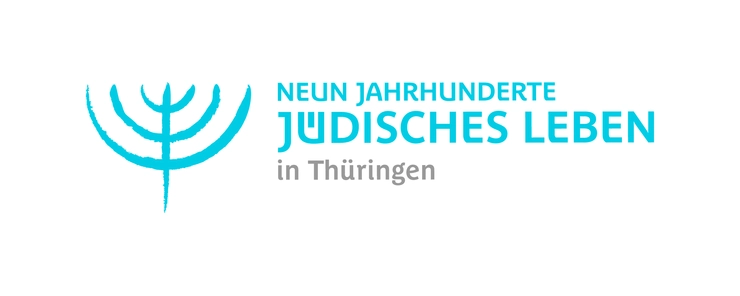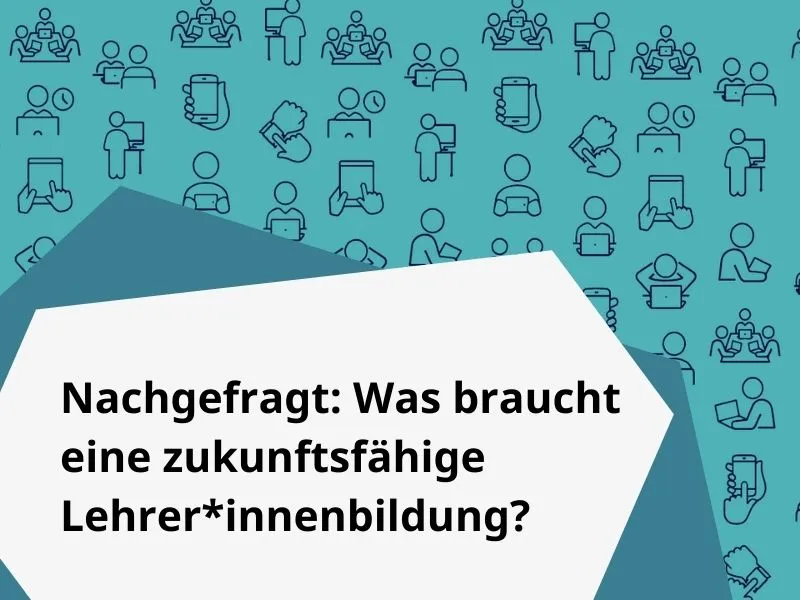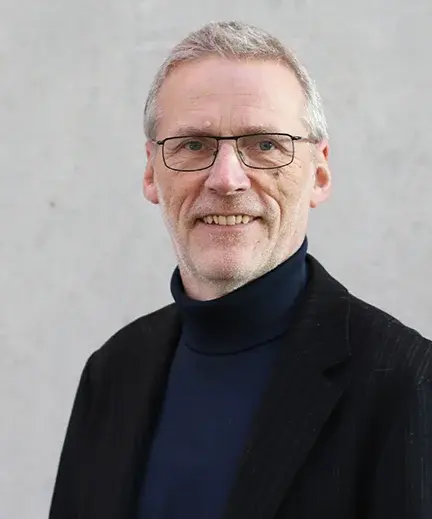Lecture Series
Summer Semester 2024: "Artificial Intelligence – Theory Meets Practice"
After the successful lecture series on the topic of ‘Artificial Intelligence’, to which the city of Erfurt and the Erfurt universities of applied sciences invited people for the first time in the summer semester of 2024, the series will be continued in 2025. On eight dates – each Tuesday from 6:15 to 7:45 p.m. in the ballroom of Erfurt City Hall – speakers from the University of Erfurt, the International University of Cooperative Education (iba), the International University and the Health and Medical University will shed light on various aspects of artificial intelligence (AI) from different scientific perspectives.
All interested parties are cordially invited to attend. Admission to the talks is free. Please note, however, that the number of seats is limited to 180.
programme (event poster for download // in German only)
Past Lecture Series
Lecture series in the summer semester 2024: "Opportunities and risks of Artificial Intelligence"
Sylke Osterloh
University Officer of the City of Erfurt
phone.: +49 361 655-2322
e-mail: sylke.osterloh@erfurt.de
Lecture series in the summer semester 2022: "What does a sustainable teacher education need?"
Please note: Some lectures are available as a stream on the Youtube channel UniErfurtLive.
12.04.22 | Professor Ernst Hany
Nachgefragt: Brauchen gute Lehrkräfte die richtigen Gene, die richtige Ausbildung oder die richtige Erfahrung?
19.04.22 | Professor Susanne Jurkowski
Nachgefragt: Wir sind zusammen groß – Toll, Ein Anderer Machts: Was bedeutet Kooperation in Schule und Hochschule?
26.04.22 | Julia Sgolik & Thorsten Ziegler
Nachgefragt: Warum digitale Medien für angehende Lehrkräfte wichtig(er) werden!
03.05.22 | Professor Sandra Tänzer
Nachgefragt: Hochschullernwerkstätten – Zumutung oder Ermutigung für Lehrende und Studierende?
10.05.22 | ProfessorEwald Terhart
Nachgefragt: Wird die Ausbildung von Lehrkräften über- und ihre Fortbildung unterschätzt?
17.05.22 | Professor Ulrike Stutz
Nachgefragt: Welche Relevanz haben ästhetische Bildungsprozesse in der Schule auch über den Kunstunterricht hinausgehend und wie können Lehramtsstudierende Kompetenzen erwerben, diese Prozesse anzuregen, zu begleiten und zu reflektieren?
24.05.22 | Professor Csaba Földes
Nachgefragt: Welche Konzepte einer (mehr)sprachsensiblen Lehrerbildung können eine Brücke zwischen der gesellschaftlichen Mehrsprachigkeit und dem monolingualen Habitus der Schule schlagen?
31.05.22 | Professor Manfred Lüders & Professor Heike Hahn
Nachgefragt: Wie kann man lernen, problemlösende Unterrichtsgespräche zu führen?
07.06.22 |Marcus Berger
Nachgefragt: Eigenaktives, selbstverantwortetes Lernen und zielgerichtete Lernprozesssteuerung – wie passt das zusammen? Problembasiertes Lernen als ganzheitliches didaktisches Konzept.
14.06.22 | Professor Johannes Bauer, Dr Eva Thomm & Professor Bernadette Gold
Nachgefragt: Wie erkenne ich eigentlich Bildungsmythen? Und warum sind sie ein Problem?
21.06.22 | Professor Alexander Gröschner & Dr Susi Klaß
Nachgefragt: Welche Rolle spielen ‚Kernpraktiken‘ in der Lehrerbildung? Überlegungen am Beispiel der Unterrichtsgesprächsführung.
download:
event poster (in German only)
In episode 6 of our science podcast "WortMelder", we talked to Professor Gerd Mannhaupt about what makes a good teacher, how Germany is doing in terms of digitisation in education, but also how schools will change in the course of digitisation and what the University of Erfurt can contribute to a future-proof school - in short: about "Digitalisierung in der Lehrerbildung".
Lecture Series in the Summer Semester 2021 "Gardens: history, form, future"
- 13.04.2021: "Philosophie im Garten: von Epikur bis Foucault" mit Dorothee Kimmich
- 20.04.2021: "Der Barockgarten als frühneuzeitlicher Versuch der Naturbeherrschung" mit Stefan Schweizer
- 27.04.2021: "Benary: Ein Erfurter Gärtner und die Entwicklung der Genetik" mit Annette Hohe
(Nur Live-Übertragung. Hierzu wird es keine Aufzeichnung geben. Die Studierenden erhalten im Anschluss Unterlagen zu dem Vortrag.) - 04.05.2021: "Schrebergärten – einst und jetzt" mit Caterina Paetzelt
- 11.05.2021: "Auf einem weiten Feld voller Träume einer anderen Welt - Ein Gemeinschaftsgarten zwischen gelebter Gemeingut-Utopie und umkämpftem Freiraum" mit Dr. Severin Halder
-
18.05.2021: "Schulgarten als Lernort und Unterrichtsfach für Kinder" mit Katy Wenzel
-
29.06.2021: "Indien – Der Garten der Sinne" mit Sara Keller (Uni Erfurt)
-
13.07.2021: "Der Garten als gesellschaftspolitische Utopie" mit Alexander Thumfart (Uni Erfurt)
-
Managing Director (Max Weber Centre for Advanced Cultural and Social Studies)
-
Holder of the Professorship "Pädagogik und Didaktik des Sachunterrichts" (Faculty of Education)
-
(apl.) Prof. Dr. Alexander Thumfart
 former University Lecturer for Political Theory (Faculty of Economics, Law and Social Sciences)
former University Lecturer for Political Theory (Faculty of Economics, Law and Social Sciences)
Lecture Series in Winter term 2020/21: "Jüdisch lernen. Konzepte und Medien der Bildung im und über das Judentum"
03.11.2020
Kurze Einführung zu Beginn der Veranstaltung (Claudia Bergmann // Benedikt Kranemann)
„Konzepte von Lehre und Bildung in der Hebräischen Bibel“ (Claudia D. Bergmann, Erfurt/Bochum)
Audio File
10.11.2020
“Education in the New Testament and Early Christianity” (Thomas R. Blanton IV, Erfurt /Chicago)
Link zur Aufzeichnung
17.11.2020
„Jüdische Feste und biblische Anamnese: Rituale als Bildungsorte“ (Benedikt Kranemann, Erfurt)
Link zur Aufzeichnung
24.11.2020
„Politische Philosophie und jüdische Perspektiven: Zur Dialektik der Emanzipation“ (Hannah Peaceman, Erfurt)
Link zur Aufzeichnung
01.12.2020
„Frauen als Rabbinerinnen in Geschichte und Gegenwart“ (Elisa Klapheck, Paderborn)
Link zur Aufzeichnung
08.12.2020
In dieser Veranstaltung beantworten Benedikt Kranemann und Claudia Bergmann die Fragen der Studierenden zu deren Hausarbeit bzw. Benotung
15.12.2020
„Die Synagoge als Gottesdienstgebäude und Lehrhaus aus der Sicht der frühen Christen“ (Daniel Greb, Erfurt)
Link zur Aufzeichnung
05.01.2021
„Jüdische Schulen in Deutschland“ (Sandra Anusiewicz-Baer, Berlin)
Link zur Aufzeichnung
12.01.2021
„Funktion und Gestalt heutiger Synagogen“ (Rabbiner Alexander Nachama, Erfurt)
Link zur Aufzeichnung
19.01.2021
„Die mittelalterliche Synagoge: Architektur und Nutzung“ (Simon Paulus, Braunschweig)
Link zur Aufzeichnung
26.01.2021
„Is education good for Jewish girls?“ (Judith Frishman, Leiden)
Link zur Aufzeichnung
02.02.2021
„Nur Abraham und Sara? Das Bild vom Judentum in der evangelischen Kirche mit Kindern“ (Dirk Schliephake, Hildesheim)
Link zur Aufzeichnung
09.02.2021
„‘Vollständige Gleichberechtigung und Gleichverpflichtung‘: Die jüdisch-christliche Simultanschule in Lengsfeld“ (Juliane Irma Mihan, Leer)
"Die Alte Synagoge Erfurt. Von der mittelalterlichen "Judenschule" zum modernen Museum“ (Maria Stürzebecher, Erfurt)
Link zur Aufzeichnung
16.02.2021
„Musik bildet: Jüdische Komponisten wiederentdecken“ (Jascha Nemtsov, Potsdam/Weimar)
entfällt
-
PD Dr. Claudia D. Bergmann
 Organiser Lecture Series Winter Semester 2020/21 (Max Weber Centre for Advanced Cultural and Social Studies)
Organiser Lecture Series Winter Semester 2020/21 (Max Weber Centre for Advanced Cultural and Social Studies) -
Holder of the Professorship for Liturgical Studies (Liturgiewissenschaft) (Faculty of Catholic Theology)
Take a look at our recorded lecture series on YouTube:

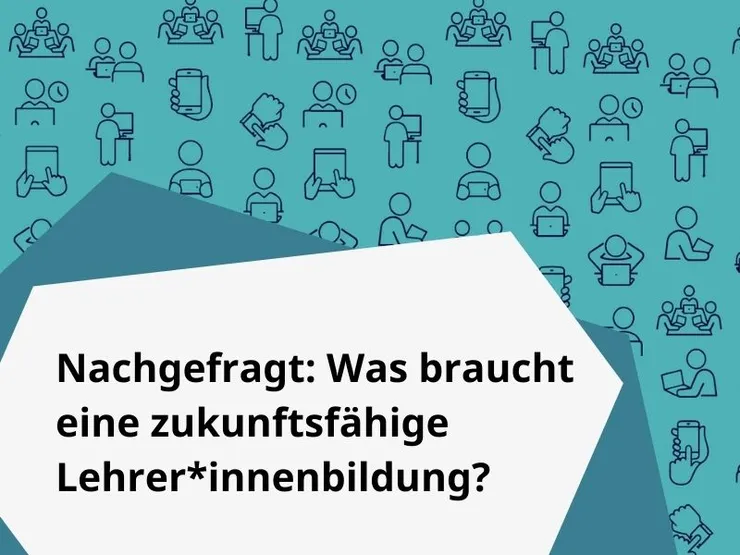
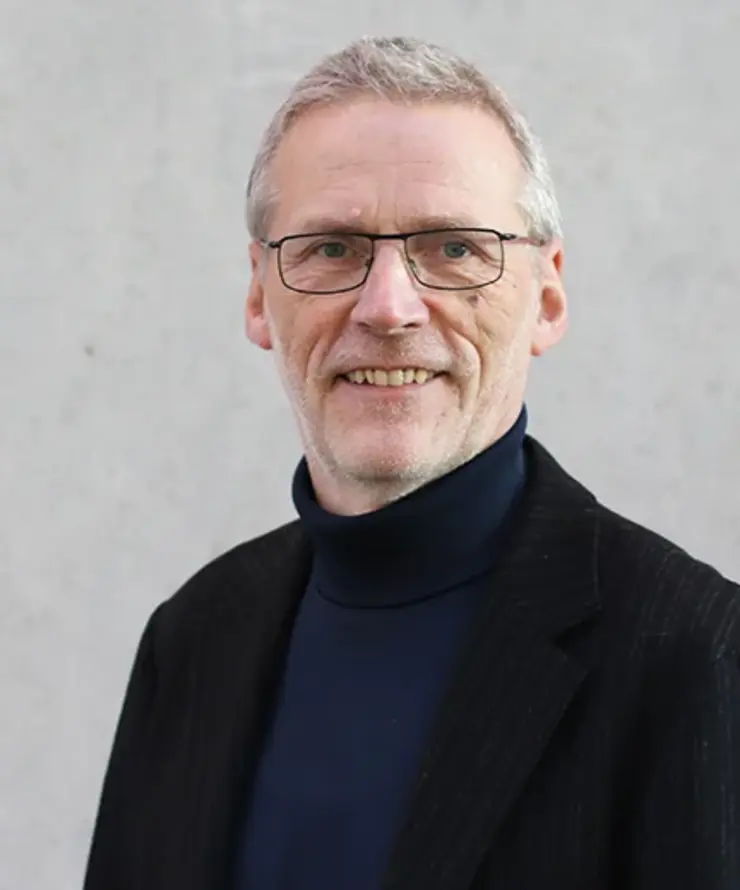
![[Translate to English:] Gartenlandschaft](/fileadmin/_processed_/6/e/csm_bridge-801861_1920_bc39a55f8c.webp)
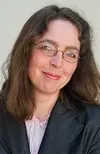

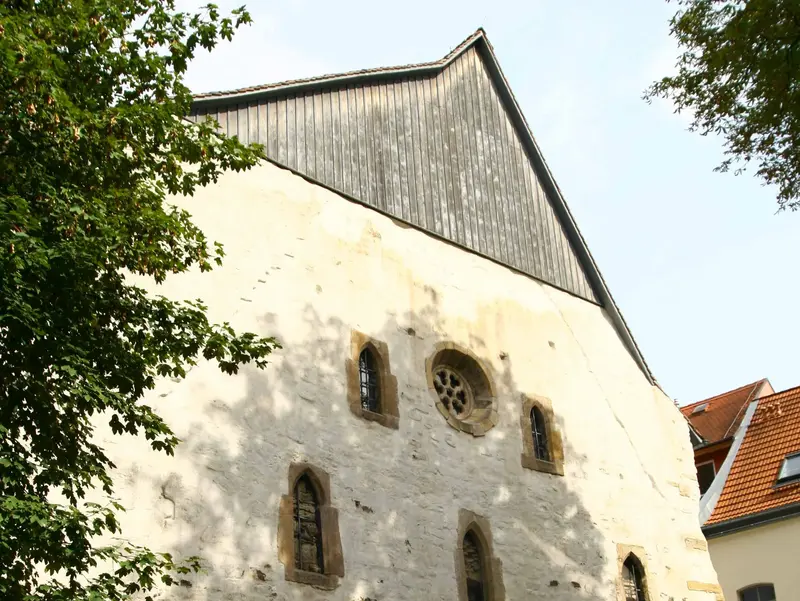
![[Translate to English:] Symbolbild Judentum](/fileadmin/_processed_/d/1/csm_pixabay_jewish-1159704_f7d2f40905.webp)
